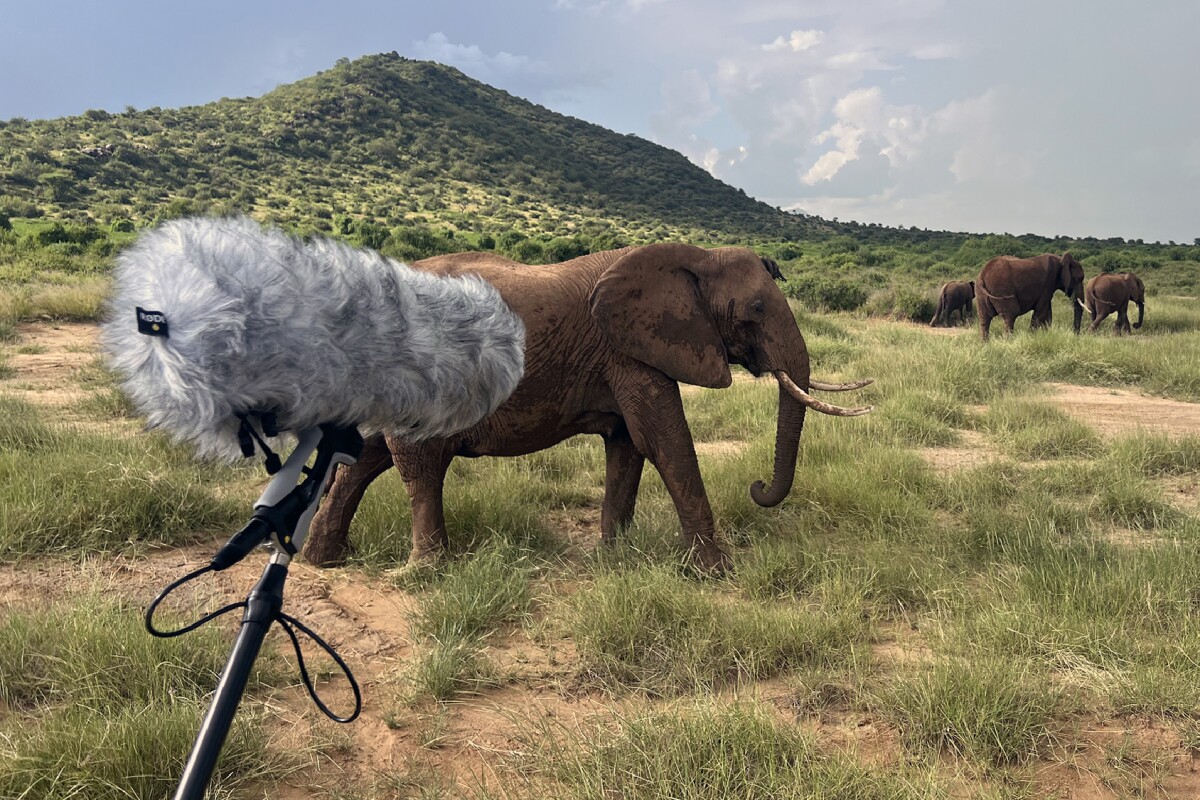Humans are fairly unique as a species because we refer to one another by name. This process, using vocal labels to identify another individual, is learned; people aren’t born knowing the personal names of all their familial and social contacts. Whereas dolphins and parrots ‘broadcast’ their identity to other members of their species using signature calls that are then imitated, humans don’t imitate.
Now, a new study by researchers from the Colorado State University (CSU) Warner College of Natural Resources, conservation group Save the Elephants, and ElephantVoices has confirmed that wild African elephants communicate in a way that’s similar to humans, addressing one another with specific, ‘name-like’ individual calls.
“Dolphins and parrots call one another by ‘name’ by imitating the signature call of the addressee,” said Michael Pardo, the study’s lead and corresponding author. “By contrast, our data suggest that elephants do not rely on imitation of the receiver’s calls to address one another, which is more similar to the way in which human names work.”
Human language is arbitrary because the words we use are just labels. It’s not possible to deduce the underlying meaning from the form of a word. There’s nothing about a ‘table,’ for example, that makes it a table; it’s just an agreed-upon term. Because it’s not imitative, arbitrary communication is considered more cognitively demanding.
“If all we could do was make noises that sounded like what we were talking about, it would vastly limit our ability to communicate,” said George Wittemyer, a professor at CSU’s Warner College of Natural Resources, chairman of the scientific board of Save the Elephants, and the study’s senior author.
When it comes to self-identification, names are also arbitrary. The researchers say that the elephants’ use of arbitrary vocal labels indicates they may be capable of creative, abstract thinking.
Elephants and humans are both highly communicative animals who live within a complex social network. Like humans, elephants function in family units, social groups, and a larger clan structure. The researchers say that, as with humans, this complexity likely drove the need to name other elephants.
“It’s probably a case where we have similar pressures, largely from complex social interactions,” Wittemyer said. “That’s one of the exciting things about this study; it gives us some insight into the possible drivers of why we evolved these abilities.”
Elephants express a range of vocalizations, from familiar trumpeting to low rumbling, that span a broad frequency. Some of them are outside human hearing. Kurt Fristrup, a research scientist at CSU’s Walter Scott Jr. College of Engineering, developed a signal processing technique to detect subtle differences in calls, and then he and Pardo trained a machine learning model to correctly identify to which elephant a call was addressed based solely on its acoustic features.
“Our finding that elephants are not simply mimicking the sound associated with the individual they are calling was the most intriguing,” Fristrup said. “The capacity to utilize arbitrary sonic labels for other individuals suggests that other kinds of labels or descriptors may exist in elephant calls.”
The elephants enthusiastically responded to recorded calls from family and friends when they were played to them by calling back or approaching the speaker. Their response was less enthusiastic when the call was meant for other elephant groups, demonstrating that they recognized their names.
“They were probably temporarily confused by the playback but eventually just dismissed it as a strange event and went on with their lives,” said Pardo.
The researchers found that it was more common for elephants to call one another by name over long distances or when adult elephants were talking to calves.
More data is needed before the researchers can isolate individual names within the calls or determine if the elephants name other things like food, water, and places. So, it’ll be many years before we can converse with these majestic animals.
“Unfortunately, we can’t have them speak into microphones,” Wittemyer said.
The study was published in the journal Nature Ecology & Evolution.





